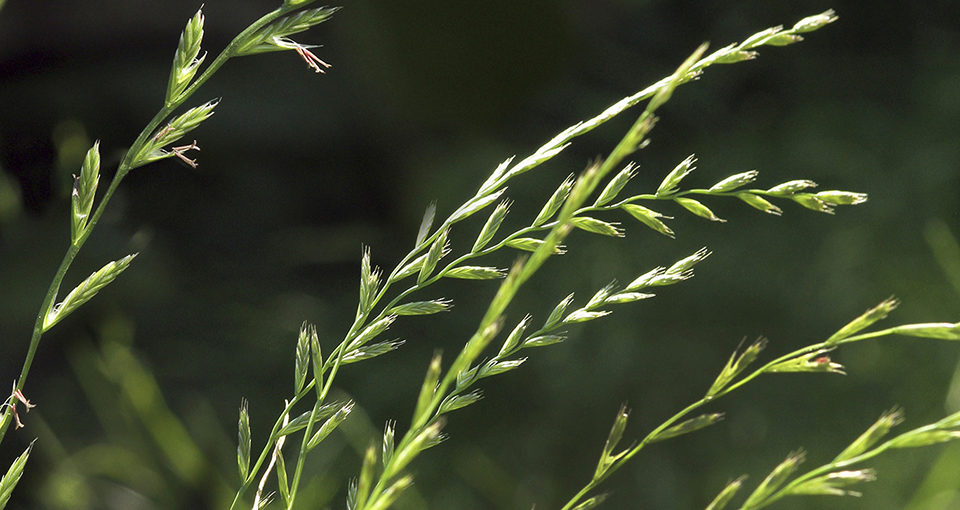
Watchlist
You can print out your watchlist and use it as a reminder for your purchase in the pharmacy.
Your watchlist currently contains no products.
Print


Couch grass
Couch grass
Botanik
Couch grass (Elymus repens, Agropyron repens) is a hardy sweet grass, anchored in the ground by a rhizome. The rhizome forms an extensive, branching network of roots, at the end of which new plants can grow. The upright stem is bare. The stem is 0.2-1.5 m high and ends at the ears. The ears are about 10 cm long, upright and mostly compact. Their spikelets consist of about 3-5 blossoms whose colour varies between pale green and reddish-violet. Elymus repens is mostly found by hedges, roadsides and in fields.
mehr
Geschichte
The German name for couchgrass (Quecke) is derived from the old German “queck” = alive. The “Quecke” owes its name to the “untameable vitality” that drove many farmers and gardeners to desperation. The part of the couchgrass that is primarily used for food is the rootstock. This was used as a coffee replacement or, boiled, as a syrup. In addition, a flour can be made for creating baked products and beer by drying and milling the root. In other parts of the world, such as Japan, the freshly harvested roots are popular additions to salads and vegetable and meat dishes. The rhizome and the offshoots have been used for animal feed since the 16th century. In the 20th century, the couchgrass root was also used as a hair tincture.
mehr
Inhaltsstoffe
Vitamin B12 in the Sidea® couchgrass
Some plants have a symbiotic relationship with bacteria that make vitamin B12. These live in groups on the roots of the plant (“nodules”). They help the plant to make elementary nitrogen available. With gentle processing, certain plants contain large amounts of nodule bacteria vitamin B12 as a micro-nutrient that is bound to the plant.
The research by Dr. Pandalis Naturprodukte led to the discovery of an unusually high vitamin B12 content in a certain variety of European couchgrass (Sidea® couchgrass). The active vitamin B12 content is three times that of the erstwhile sea buckthorn berry harvest. However, not every couchgrass root contains vitamin B12, as this only applies to plants of certain origins.
The research results for which a patent application has been filed required comprehensive preliminary scientific work at the University of Hanover in order to optimise the vitamin B12 analysis. Two doctoral theses on this topic were initiated by Dr. Pandalis. In addition, a method that only detects biologically active vitamin B12 was developed.
mehr
Hinweise/Besonderheiten
Vitamin B12
An adequate supply of vitamin B12 is mainly important for normal blood formation, as vitamin B12 mainly contributes to the ripening of the erythrocytes. Vitamin B12 also plays a central role in the normal function of the immune system and supports the normal energy and homocysteine metabolism. This vitamin is important for building every new cell, whether it’s in the blood, on the mucous membranes or in the gastro-intestinal tract. As well as this, it is essential for the functioning of the nerve cells. There is epidemiological evidence that even a latent vitamin B12 deficiency can lead to mental health problems. A vitamin B12 deficiency can be caused by nutritional deficits, e.g. with vegans or strict vegetarians or when there is an increased requirement, for instance with pregnant and breastfeeding women, women who are taking the “pill” and older people. Older people, in particular, often have an unbalanced diet, and on top of this, a reduced production of stomach acid leads to a worse absorption of vitamin B12 from the intestine. People with a deficiency tend to be pale, weak and listless.
mehr


